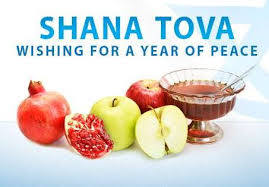 Elul, the final month of the year, is here. Indeed, it features neither holidays nor special occasions, but this fact is exactly what makes this time of year so special. There are no external events on which to focus, no story from the past from which we can draw lessons.
Elul, the final month of the year, is here. Indeed, it features neither holidays nor special occasions, but this fact is exactly what makes this time of year so special. There are no external events on which to focus, no story from the past from which we can draw lessons.
There’s onlyus, the past year, and what we wish for the next one. Elul is a time of observation in the present,
a present that delicately balances a hopeful look into the future together with self-examination
regarding the past. Usually, the two are tied together.
Through our ability to assess, honestly and truthfully, our actions in the past, we can build our future.
This year has provided ample practice for our “uncertainty muscle”. Normally we all meet
moments of incertitude on occasions such as Elul. Moments where one thing ends, and a new
thing begins.
These occasions can produce a variety of feelings, all stemming from the deep
sense that ultimately much is out of our control. But what is in our hands?
The answer is: Teshuvah (“repentance” – but we shall see why this translation misses the point
a little). The root of the word Teshuvah comes from Lashuv, to return. But return to where?
The emphasis on repentance as returning is that what we aspire to already exists; this is no new
creation, but rather an exposure of something already existing within us, a revelation. It is a dis-
covery of the good point in us, the part we know exists but can’t always bring up to the surface.
It’s true, there is no limit on repentance at any time of year (it is even recommended to do it
daily) but we all know how life can be…from one task to the next and sometimes we miss the
chance.
What makes Elul so special?
There is an allegory. It tells a story about a king who leaves his throne, wears simple clothing,
and comes to visit the people in the field. The king in the field. Such a situation allows even
those who usually feel unworthy, too far away or too busy, to greet the king in their usual
surroundings. Of course, the king has made an unusual effort, but it is still up to each and every
one to greet him and attempt to be near him. This is the advantage of Elul. There is a Divine
force that eases our ability to make good decisions, to choose to be better than yesterday.
Maybe we are not miraculously changed but we are given unusual strength, both for examining
and acting upon it, to make our Teshuvah. Don’t let this moment pass you by. After all, it is not
every day that the king is in the field.
